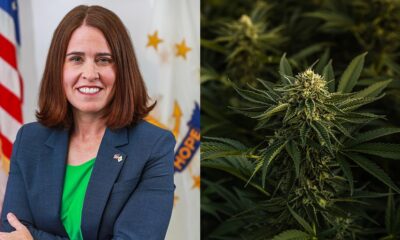Florida voters rejected recreational marijuana legalization Tuesday night, dealing a huge blow to the industry and those that had bet heavily on opening up what could have been one of the nation’s largest adult-use cannabis market.
The ballot measure had 55.7% approval with 91% of votes counted, according to the Associated Press, falling short of the 60% threshold needed to change the state constitution. About 5.75 million voters backed the initiative, while 4.56 million opposed it as of press time. Governor Ron DeSantis confirmed the measure’s defeat in an evening online statement.
In addition to aggressive store growth and preparation ahead of the vote, Trulieve Cannabis Corp. (OTC: TCNNF) threw more than $140 million of its own in the failed campaign — the most expensive legalization push to date — while state agencies deployed tens of millions in opposition advertising.
Smart & Safe Florida, the group behind the measure, said it would pivot to working with state leaders on more limited reforms.
“We remain committed to advocating for a smarter and safer Florida and will continue to work towards solutions that benefit all Floridians,” the group said in a statement, citing goals including decriminalization and home cultivation.
The measure’s failure preserves Florida’s medical-only market, where regulators recently finalized new licenses for Black farmers tied to Pigford litigation and have another 22 permits pending the governor’s approval.
“This isn’t the end in Florida, it’s just the beginning since we’ve now seen how strongly the push for legalization resonates in the state,” said David Culver, chief of policy at the U.S. Cannabis Council. “Smart & Safe Florida ran a historic, bipartisan campaign that achieved majority support among Floridians. Anywhere else, that would have meant a victory.”
Some analysts, including Rivers, saw the market reaching $6 billion based on per-capita consumption in comparable states like Michigan.
The defeat prompted swift reaction from cannabis executives.
“While it’s disappointing to see Florida’s Amendment 3 fall short of the threshold necessary, it’s important to recognize the bipartisan voter support that the measure received.
“Constitutional amendments requiring 60% approval are always difficult but Americans’ support for the cannabis industry is undeniable,” NewLake Capital Partners CEO Anthony Coniglio said. “The cannabis sector will remain resilient, and operators, investors, and advocates alike will continue to push for reform in states where the regulatory environment is more favorable.”
Medical operators moved to point out their market position. Fluent Cannabis will keep its focus on Florida’s existing medical market, according to CEO Robert Beasley. The company’s already been planning to expand its retail and cultivation footprint.
“It underscores the value in Fluent’s conservative business model,” Beasley said.
Florida’s medical program still offers advantages over recreational markets, including tax exemptions and higher possession limits, according to Aaron Bloom, who heads DocMJ, the state’s largest cannabis physician practice.
The road ahead for cannabis remains uncertain. While momentum in cannabis rescheduling discussions could very well move along as former President Trump heads into a second term, his unexpected backing of the failed measure could signal openness to broader reform.

 California Cannabis Updates1 year ago
California Cannabis Updates1 year ago
 Breaking News1 year ago
Breaking News1 year ago
 best list1 year ago
best list1 year ago
 Business1 year ago
Business1 year ago
 Business1 year ago
Business1 year ago
 cbd1 year ago
cbd1 year ago
 Bay Smokes1 year ago
Bay Smokes1 year ago
 autoflower seeds1 year ago
autoflower seeds1 year ago















































